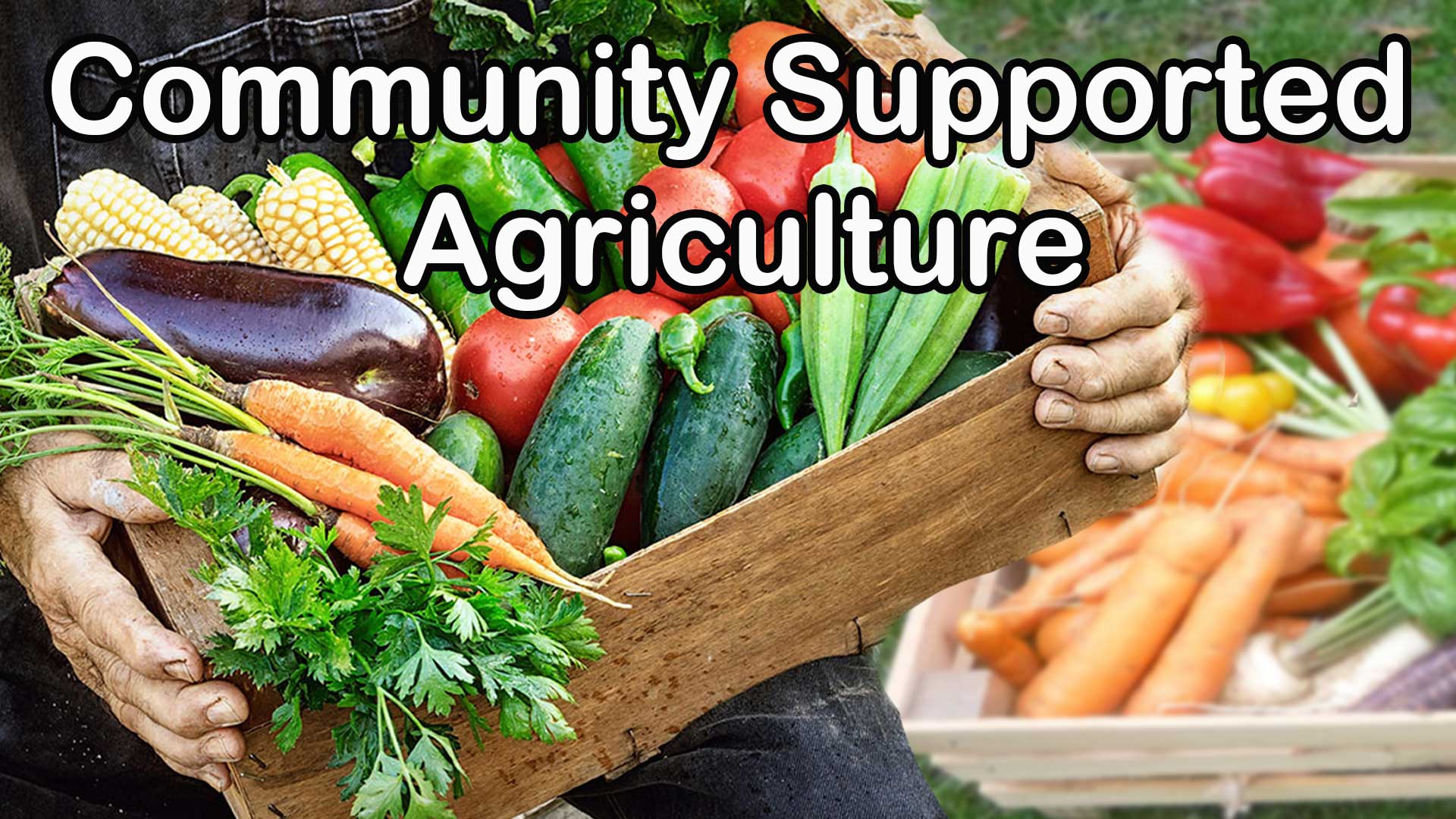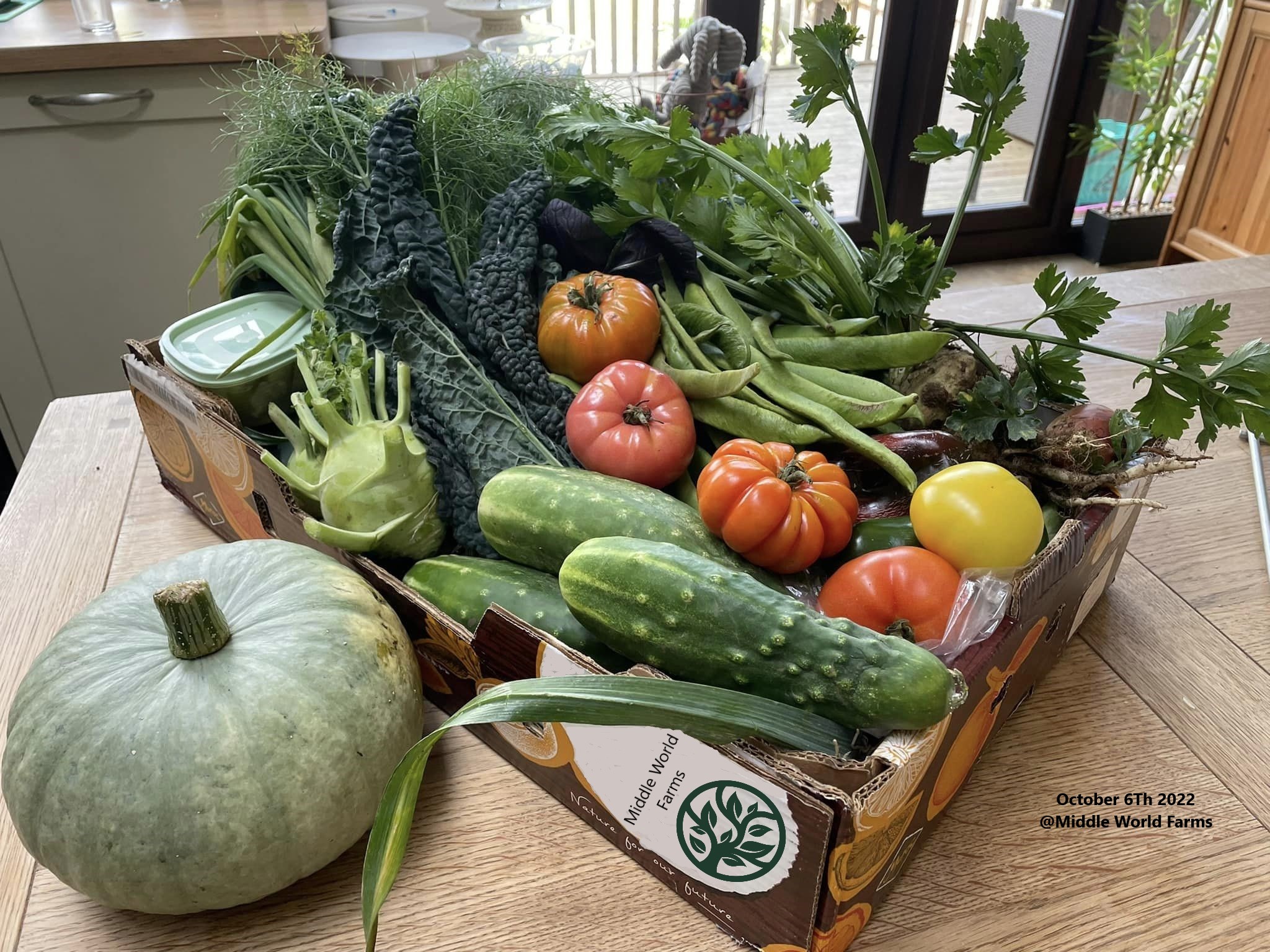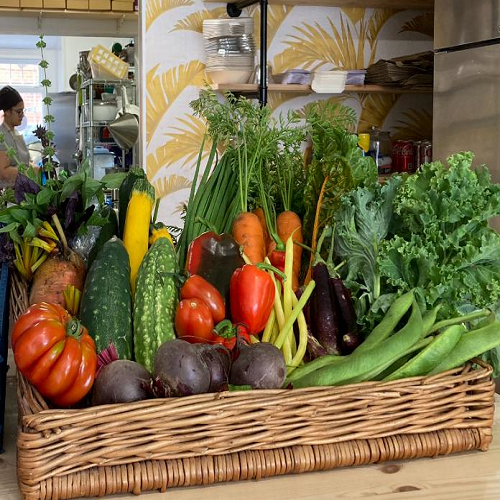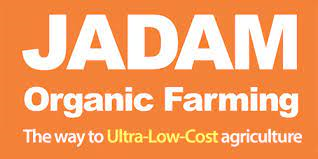About CSA
We have tried to give you as much information as we can, but if you still have question please use the contact page.
What are CSAs?
Community Supported Agriculture (CSA) is an innovative farming model which provides fair, stable incomes for farmers and increases access to locally produced food while strengthening communities and increasing understanding of how sustainable farming protects, restores and enhances biodiversity and addresses climate change. CSA is a partnership between farmers and consumers in which the responsibility, risks and rewards of farming are shared. CSA consumers (or members) are closely linked to the farm and the production of their food and often commit to buy produce for a whole season – rather than on an adhoc basis as you would with a standard veg box or shop. This upfront commitment makes CSA an accessible option for new entrants who have little or no capital to start-up a farm enterprise. Farmers receive a more stable income and guaranteed market in addition to a closer connection and support from their community.
The whole farming pound goes directly to the farmer, so staying within the local economy. Members benefit by eating fresh, fairly-priced, healthy produce from a known, local source with whom they have a relationship of trust and mutual openness. CSA farms also deliver added value through increased local employment, support for other local food businesses, skills development, improved health and wellbeing as well as significant environmental benefits delivered by all farms and communities practising agroecological farming. CSA offers a powerful approach to reconnect people and agriculture. It is a growing answer to concerns around sustainability, resilience and transparency in the food system. The movement is growing in the UK, there are currently around 200 diverse CSA farms in the UK feeding thousands of households. The CSA Network supports over 150 farm members, a number which has risen by more than 50% in the past 12 months, and is seeing huge interest from new entrants wanting to set up CSA farms.

The benefits of CSAs
1. Economic
CSAs are an invaluable part of the UK food system and offer food supply resilience:
During the pandemic CSAs remained resilient and continued as normal due to the long-term partnership between producers and members, with most CSAs seeing a huge increase in demand. If the CSA model were to be replicated in every community, this self-supporting, diverse network would be able to keep local, fresh and healthy produce flowing to most citizens in times of crisis.
CSAs have short supply chains, no or low retail, transport and marketing costs and direct sales to members so the whole farming pound is retained in the local economy, particularly by the farmer or grower. This is compared to just 8% of the food pound (£) retained by average farmers in the UK1. CSAs have the potential to produce direct routes to market for existing landowners and larger-scale farmers (if they were to open up a part of their land to a CSA model). For these landowners, CSA creates a productivity bump because it generally turns small areas of low productivity into high productivity land.
CSAs are first and foremost productive businesses. They are highly productive per acre of CSA farm in addition to income from traded produce and other services. Community Supported Agriculture schemes help people to develop and share skills, with over three-quarters offering training programmes2. Local employment is also boosted, with CSAs showing high levels of employment relative to the land available – employment per hectare in Community Supported Agriculture systems is higher than the agricultural average. The two biggest barriers to new entrant farmers are land access and start up capital. CSAs are self-reliant, the model supports existing CSAs to train and incubate new starter CSAs that can then set up with minimal investment as they already have a trusted customer base and place in the local community. The upfront payment commitment from members makes CSA accessible for new entrants who have little or no start-up capital.
2. Environmental
CSAs practice agroecological farming, including non-certified organic or organic techniques, which studies have shown support more biodiversity than conventional systems and protect soil health. Many CSAs contribute to agro-biodiversity through cultivation of a wide range of crops and raising rare and local breeds of livestock, 77% of CSAs have increased diversity of production on their land.
Most CSAs already provide many environmental public goods – 55% of CSAs have planted more hedges and trees on their farms and 61% have introduced new wildlife areas.
CSAs contribute to the mitigation of climate change through reduced food miles/fossil fuel use/agrochemical use.
3. Social benefits, education, health and public access
The majority of CSAs offer public services free of charge and with no public funding – 77% of initiatives count education or training among the services they provide and many host community groups and school groups.
Many CSAs engage in social prescribing and care farming, using referral systems to welcome volunteers from local health or social care services to access the farmland. All CSAs welcome volunteers to gain experience, training and skills on the farm, improving community mental and physical health, reducing social isolation and reducing strain on the healthcare system.
CSAs provide healthy, fair-priced fruit and vegetables and other produce. Many CSA members report feeling significantly happier, with over 70% saying their quality of life and health has improved and that their cooking and eating habits have changed through using more local, seasonal and healthy food.
CSAs are in a unique position to connect with members of the public and invite them to get involved in agricultural activities and increase engagement with the environment. Most CSA farms in the UK have an open-door policy and welcome people onto their land.
What is the CSA Network UK?
The CSA Network UK:
- Facilitates communication and cooperation between CSAs in the UK
- Supports new and existing CSAs through resources, events, training and advice.
- Promotes and raises awareness and understanding of the CSA model
amongst farmers, growers, the wider public and government.
The network supports over 150 farms and counting in the UK,
feeding tens of thousands of people.




Seeking out local produce that’s grown in harmony with nature is a delicious, powerful and easy way to look after these many concerns at once!
A growing movement
The last few years have seen much increased growth of Community Supported Agriculture (CSA) in England. Creation of new initiatives was fairly steady between 2000 and 2008, at a few initiatives a year – see figure below. Since 2009 many more new initiatives have started trading: 14 or more each year. The average age for a CSA initiative is just under 3 years. This growth may at least in part reflect the strong support provided in recent years, particularly by the Soil Association through the Making Local Food Work programme and the availability of funding from the Local Food Fund and other sources. Evidence from the United States 12, France 13 and Germany 14 points to similarly accelerating growth of CSA in recent years (at a much higher rate in France and the US). In the United States, there were 12,549 farms marketing products through community supported agriculture in 2007, up from 2 in 1986 and 200 in 1992. In France, the Associations pour le Maintien d’une Agriculture Paysanne (AMAP) model has shown even more rapid growth15. The first AMAP initiatives were created in early 2001 and there are now approximately 3,000 farms working with AMAP across France. Whether growth on a similar scale can be replicated in England remains to be seen. The consistent pattern of growth, albeit from widely differing starting points and at different rates, suggests increasing popular demand for the reconnection CSA offers between people and their food. This may be result of increasing economic and environmental uncertainty eroding faith in the mainstream food system and conventional investment models.
Lost CSA initiatives
Inevitably some CSA initiatives cease trading, either altogether or under a CSA model. We are aware of 18 initiatives in England that previously operated under a CSA model but ceased at some point in the last 10 years, in the majority of cases through a change of approach or business model rather than complete cessation of trade. In several cases, the move away from a CSA model followed the departure of one or more key individuals, suggesting that the leadership of someone with suitable skills and social entrepreneurship may be critical to an initiative’s viability as a CSA. In other cases, a considered decision was taken on business grounds to move to an alternative model. After 10 years or more around half of CSA initiatives are no longer trading as such. The low rate of straightforward business failure suggests that CSA may fulfil an important transitional role for some farm businesses and community groups. This may change as CSA becomes a more established and widely known approach.









